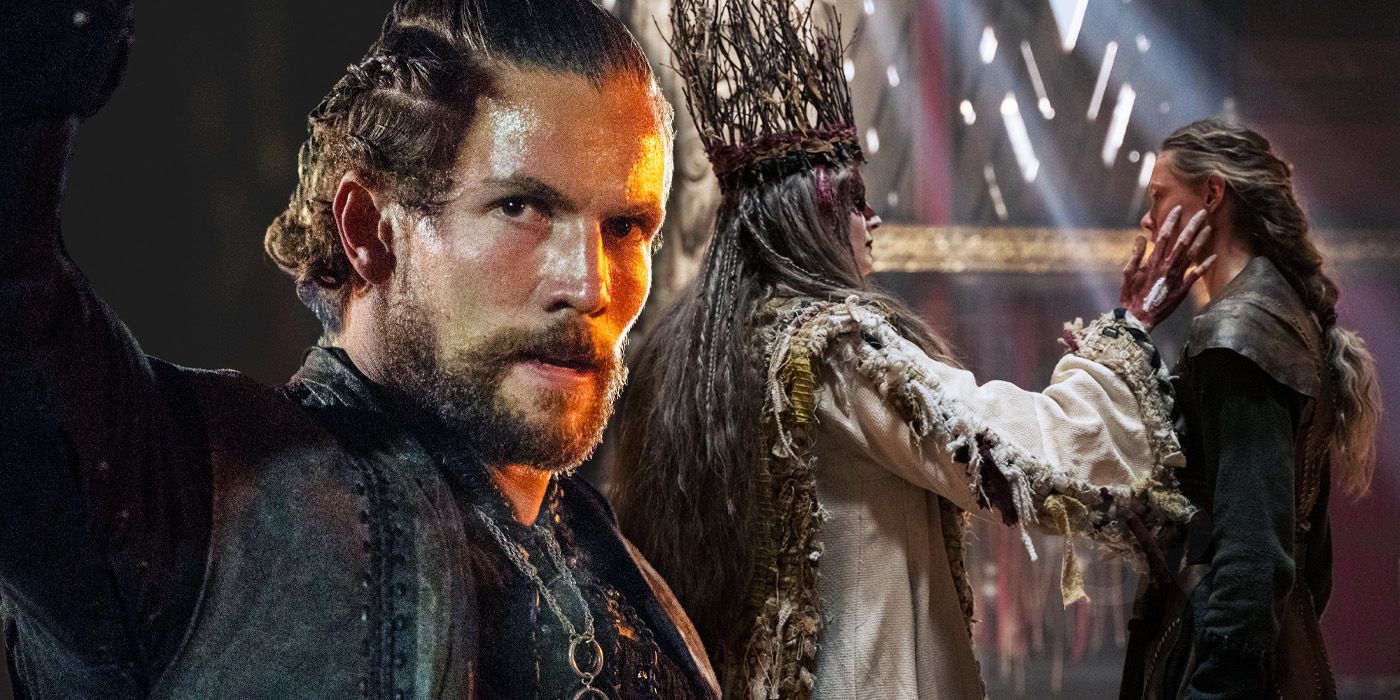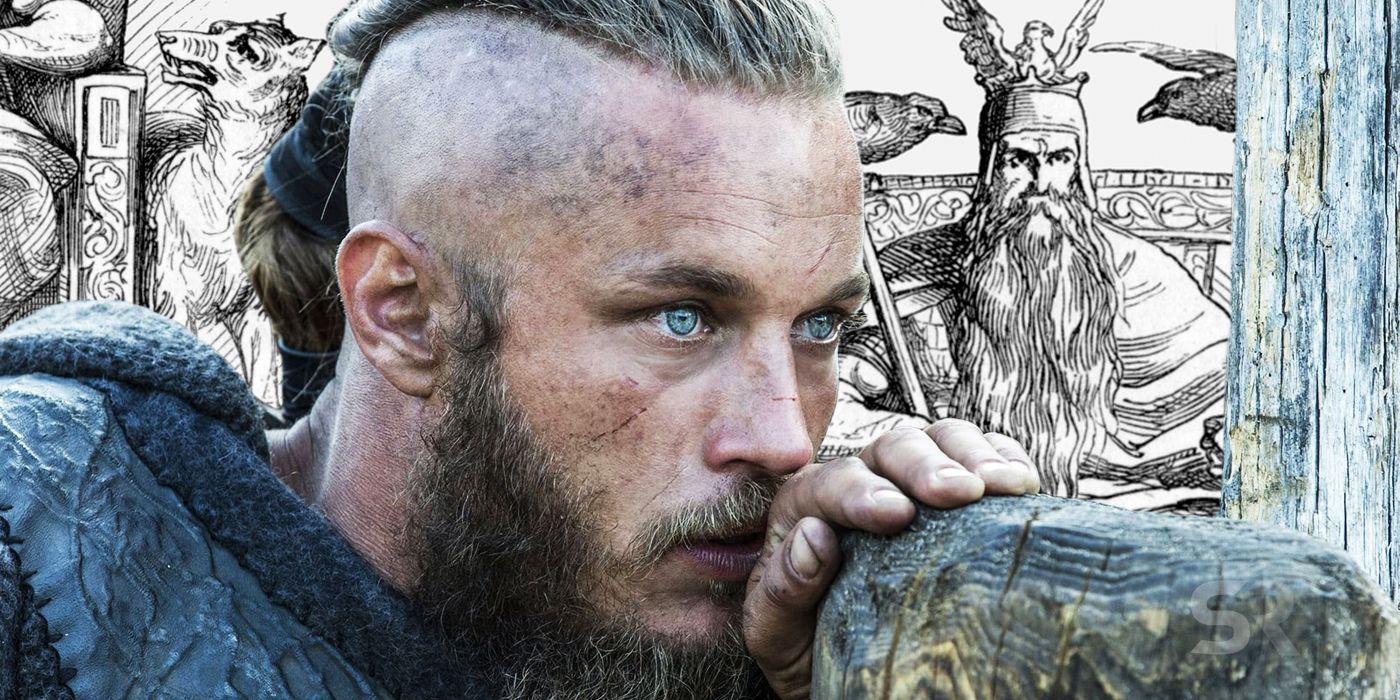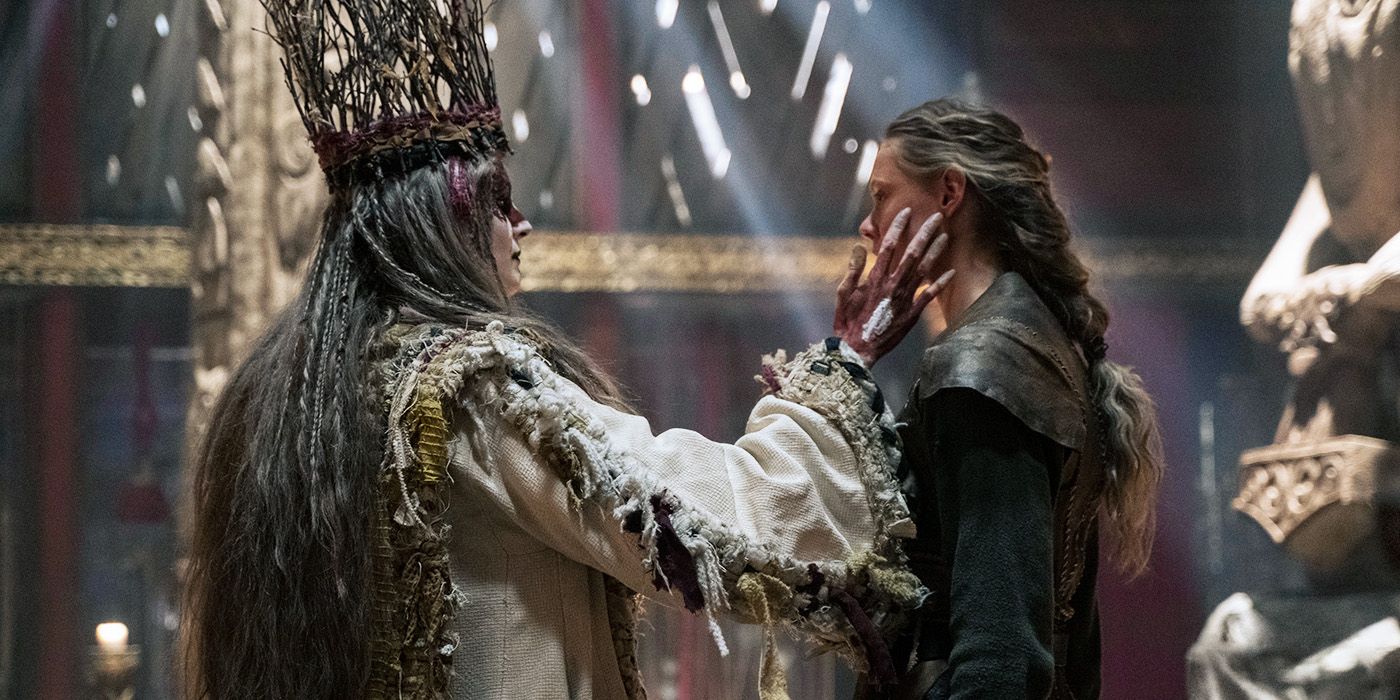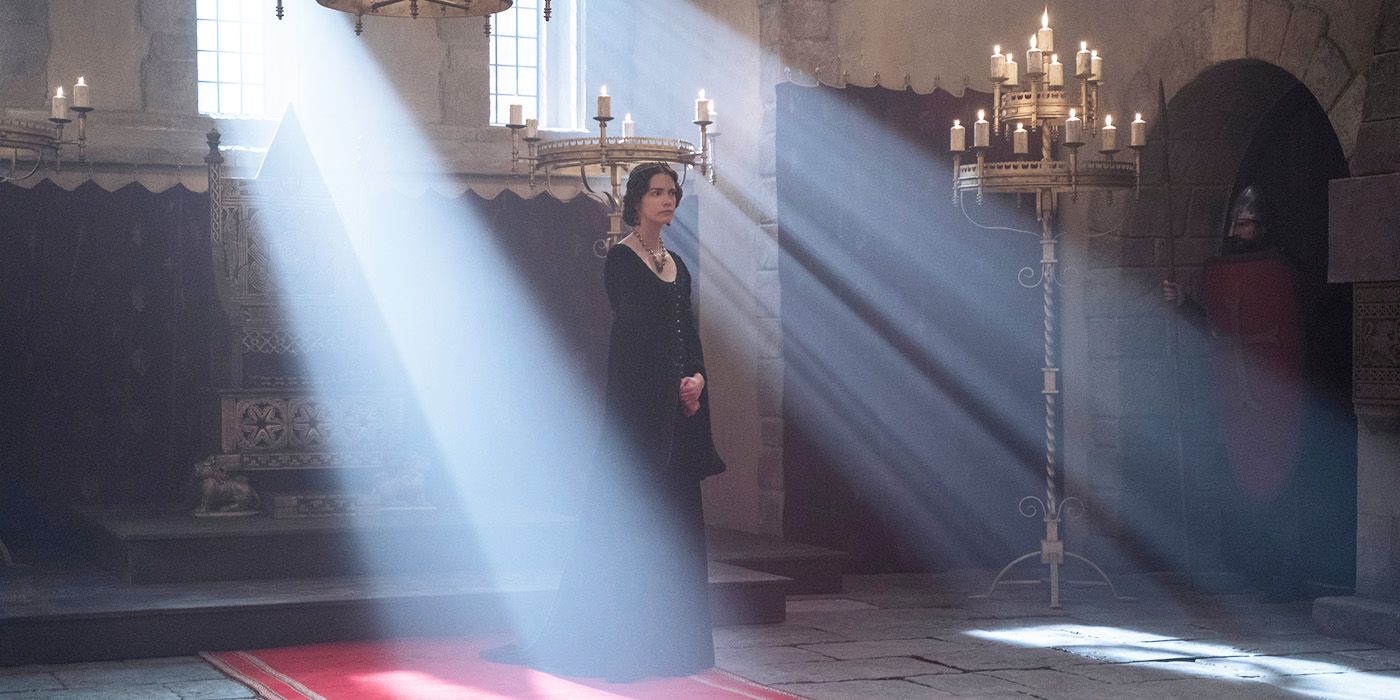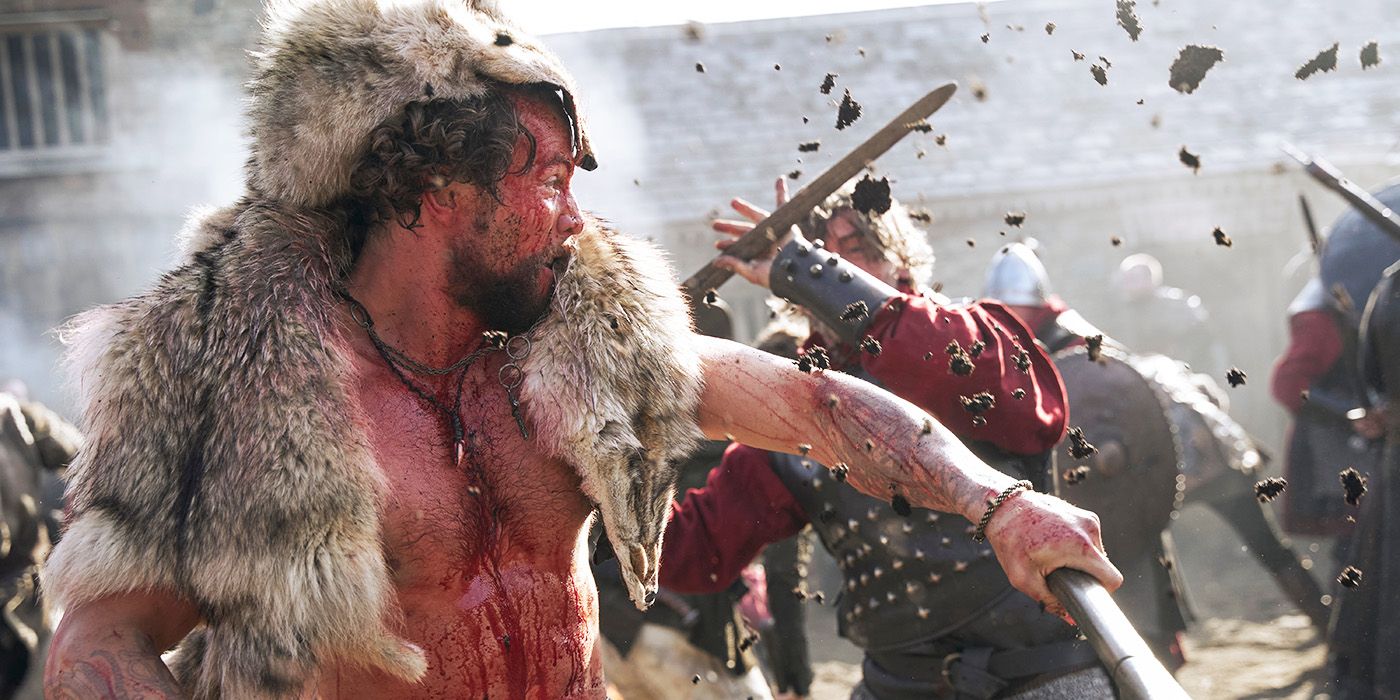Vikings: Valhalla explored the conflict between pagans and Christians, which had its beginnings in Vikings, but what did Vikings believe in and were there pagan and Christian Vikings? One of the most popular and successful historical dramas in recent years is Vikings, created by Michael Hirst and which premiered on the History Channel in 2013. Although it was originally planned to be a miniseries, Vikings lived on for a total of six seasons and came to an end in 2019, but the stories from the Viking Age continue in Vikings: Valhalla.
Vikings initially followed legendary Norse warrior Ragnar Lothbrok (Travis Fimmel) and his travels and raids alongside his Viking brothers, but as the series progressed, it changed its focus to Ragnar’s sons – Björn, Ubbe, Hvitserk, Sigurd, and Ivar – and their own journeys. These characters became the protagonists of Vikings after Ragnar’s death in season 4 until the end of the series, which gave full closure to their arcs. Vikings explored the early years of the Viking Age, beginning with the Lindisfarne raid, but six seasons weren’t enough to tell the most exciting stories from the Vikings, and so a sequel series, titled Vikings: Valhalla, was announced in 2019.
Set over a century after the events of Vikings, Vikings: Valhalla follows Leif Erikson (Sam Corlett), Freydís Eiríksdóttir (Frida Gustavsson), and Harald Sigurdsson (Leon Suter), as they go on a journey that takes them across oceans and battlefields, with the conflict between Vikings and English royals as the backdrop. The tension between pagans and Christians was shown in Vikings, with Athelstan (George Blagden) being Ragnar and company’s first approach to Christianity, and different characters going through a crisis of belief after that. This tension and conflicts are at the front and center in Vikings: Valhalla, but what did Vikings believe in and are the depictions of these opposing sides accurate?
What Gods Did The Vikings Believe In?
The Vikings practiced the Old Norse religion or Norse Paganism, and its mythology and stories can be found in Eddic poetry and in the Poetic Edda. Old Norse religion was polytheistic, meaning that those who practiced it worshiped different gods and goddesses. These were anthropomorphic deities who expressed human emotions, and some sources differentiate between two groups of deities. First are the Æsir, the gods of the principal pantheon, and the second group are the Vanir, and the two fought a war in which the Vanir broke down the walls of Asgard, the Æsir’s stronghold. The two sides eventually made peace through a truce and the exchange of hostages, ultimately becoming a single pantheon.
The Æsir appear to be connected with power and war, and in the Eddas, the word “Æsir” is used for male gods, while “Asynjur” is used for the goddesses. The most notable gods and goddesses in this group are Thor, Baldr, Heimdallr, Frigg, and Freyja, and some sources include Odin and Loki in this group while others considered them outside the ranking. The Vanir, on the other hand, are associated with fertility, wisdom, and the ability to see the future. Some gods and goddesses from the Æsir are also part of the Vanir group, as are Njörðr, Freyr, and Freyja. Norse religion has a variety of gods and goddesses, each one associated with different elements and traits. For example, Thor is associated with lightning, thunder, and the protection of mankind; Frigg with marriage, clairvoyance, and motherhood; Freyja with love, beauty, and war; and Odin with wisdom, death, royalty, knowledge, and war.
Were All Vikings Pagans?
Most of the population of Scandinavia during the Viking Age was pagan during the first years, but the Vikings came into contact with Christianity through their raids (very much like Ragnar did with Athelstan), so this era was also a period of religious change in Scandinavia. It’s widely believed (and portrayed in different media) that pagan Vikings hated Christians, but historians believe that the attacks on Christian churches were unrelated to their different religious views. It’s also believed that pagan Vikings had no issue in accepting the Christian god along with their own, and this can be seen in some of the written sources from that time, which mix elements of Christianity with the Norse gods – for example, Odin is said to have been sacrificed to himself by being hanged on a tree and pierced on the side, and went through a sort of “resurrection” days later, very much like Christ. Most of the Viking population was pagan, but those beliefs started to shift to the point where Norse religion was eventually a thing of the past.
When Did Vikings Begin Converting To Christianity (& Why)
According to some sources, attempts to convert the people of Scandinavia to Christianity began even before the Viking Age, and there were different failed attempts to do so. There’s archeological evidence that suggests Norway gradually adopted Christianity, but the conversion of settlements depended on whether the local chieftain converted. Harald Bluetooth of Denmark (Sweyn Forkbeard’s father and Canute’s grandfather) appears to have been more successful on his mission to spread Christianity and marked the beginning of the lasting conversion of the Danes. Olaf Haraldsson was also successful and his conversion in Norway led to lasting conversion, but in every case, converting the pagan population in Scandinavia to Christianity wasn’t easy nor fast, and it took many missions to finally spread Christianity and establish it as the main religion.
Did Vikings Have Pagans vs. Christians Battles Like In Valhalla?
According to different sources, pagans were a lot more tolerant of Christianity than has been shown in Vikings and Vikings: Valhalla. As mentioned above, there were already Christians in Scandinavia at the beginning of the Viking Age, and the transition from paganism to Christianity lasted many, many years. It’s also mentioned that the Vikings came into contact with Christianity through their raids, but their attacks had nothing to do with religion and more with how monasteries were wealthy and poorly guarded, so they were very easy targets. Vikings quickly adopted Christianity when settling in lands with a Christian population and were also somewhat pressured to convert to Christianity in order to have more peaceful relations with Christians, and the process of transition, as well as the coexistence of pagans and Christians, has been mostly described as peaceful. Of course, there were disagreements at different points, such as when Olaf Tryggvason sent a Saxon missionary to Iceland, and the animosity between pagans and Christians grew to the point where they blasphemed each other’s gods, but they reached an agreement: the Icelandic law would be based on Christian principles with concessions to the pagan community.
Although Vikings: Valhalla is based on historical events and real-life people, there are also many fictional elements and details added to enhance the drama and the stories of each character, so it’s not surprising that they made the “pagans vs Christians” situation a lot more dramatic and violent than it actually was. Surely, season 1 of Vikings: Valhalla won’t be the end of this conflict, and future seasons will continue to explore the conversion of the Vikings and their many differences with the Christians.

